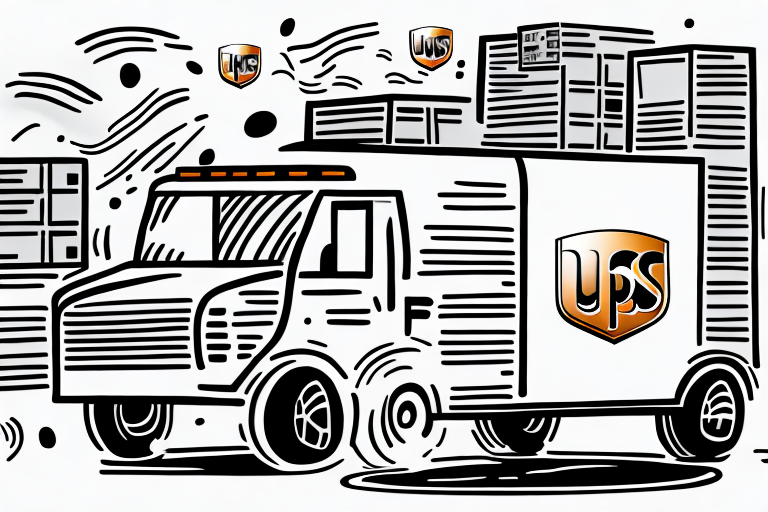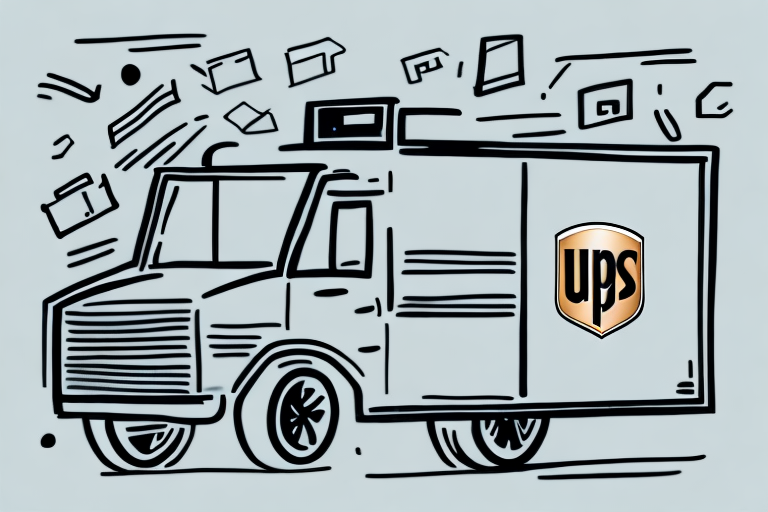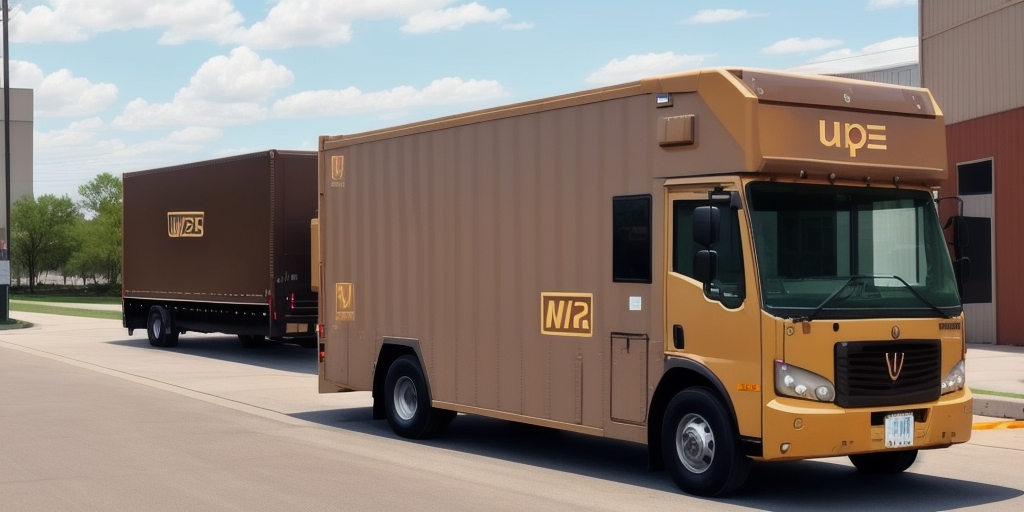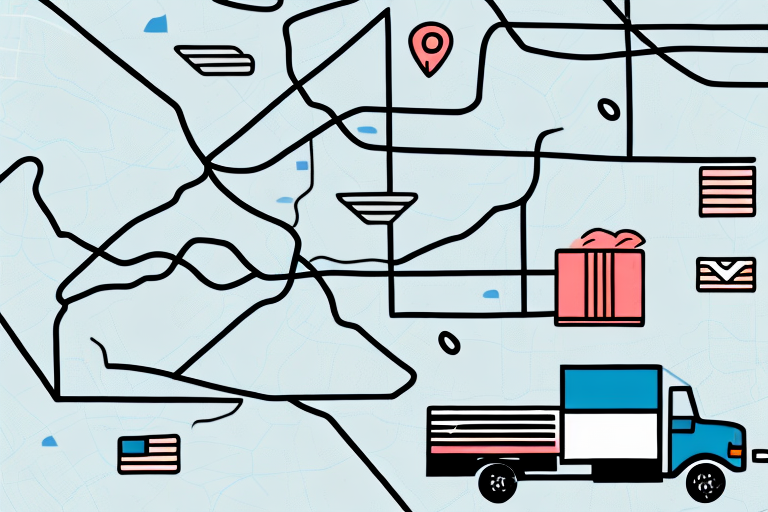Understanding UPS Insurance
When shipping valuable items, it's crucial to protect your investment against potential risks during transit. UPS Insurance offers financial protection for your shipments, ensuring that you are compensated in case of damage or loss. This service is particularly important for businesses and individuals frequently shipping high-value or fragile items.
What is UPS Insurance?
UPS Insurance is a service provided by UPS that offers financial reimbursement for lost or damaged packages during shipping. Unlike the standard liability coverage included with UPS shipments, insurance must be purchased separately and is based on the declared value of the package. This ensures that your shipment is adequately protected according to its value.
Why Do You Need UPS Insurance?
Even with UPS's robust handling procedures, accidents can occur. Whether it's a misrouted package, damage during transit, or unforeseen circumstances, having UPS Insurance provides peace of mind. It ensures that you won't bear the full financial burden of replacing or repairing valuable items.
Types of UPS Insurance Coverage
UPS offers several insurance options tailored to different shipping needs:
Declared Value Coverage
This is the basic insurance option provided by UPS. It covers up to the value you declare for your package, with an additional fee applied based on the declared amount. For shipments within the U.S., the standard liability limit is $100, while international shipments also have a $100 standard limit.
Enhanced Liability Coverage
For those requiring higher coverage, UPS offers enhanced liability options. This coverage extends up to $100,000 per package, with additional fees for amounts exceeding the standard limit. This is ideal for shipping high-value items that exceed the basic coverage limits.
Third-Party Insurance
In addition to UPS-provided insurance, third-party insurance providers offer specialized coverage for UPS shipments. These policies can provide additional benefits and coverage limits beyond what UPS offers, catering to specific needs such as custom valuations or specialized item protection.
Cost of UPS Insurance
The cost of UPS Insurance depends on the declared value of your package and the type of coverage you select. Here’s a breakdown:
- Declared Value Coverage: UPS charges approximately $0.90 for every $100 declared. For example, declaring a package value of $500 would incur a fee of $4.50.
- Enhanced Liability Coverage: Fees increase with the level of coverage beyond the standard $100. It's essential to request a quote based on your specific needs.
Additional factors influencing cost include the shipping destination and the nature of the items being shipped. Premium items like electronics, artwork, and antiques may require higher coverage and incur additional fees.
Filing a UPS Insurance Claim
If your shipment is lost or damaged, filing a UPS Insurance claim promptly is essential to receive compensation. Here's how to navigate the claims process:
Steps to File a Claim
- Document the Damage: Take clear photos of the damaged package and its contents immediately upon receipt.
- Gather Documentation: Collect all relevant documents, including the shipping receipt, invoice, and any correspondence related to the shipment.
- Submit the Claim: Visit the UPS Claims Center to initiate your claim. Provide all necessary information and documentation as requested.
- Await Resolution: UPS will review your claim and determine the appropriate compensation based on the coverage and evidence provided.
Common Claim Exclusions
UPS Insurance does not cover certain items, including:
- Cash and negotiable instruments
- Jewelry and precious metals
- Perishable goods
- Hazardous materials
Review the UPS Insurance Terms and Conditions to understand all exclusions and ensure your items are eligible for coverage.
Maximizing Your UPS Insurance Coverage
To ensure you receive the maximum benefits from your UPS Insurance policy, consider the following tips:
- Accurate Valuation: Declare the full value of your items to avoid under-compensation in the event of a claim.
- Proper Packaging: Use high-quality packaging materials and follow UPS's guidelines to minimize the risk of damage.
- Documentation: Keep all shipping documents, receipts, and photos of the packaged items for reference during claims.
- Choose Appropriate Coverage: Select the right level of coverage based on the value and fragility of your items.
Additionally, regularly reviewing UPS's insurance policies can help you stay informed about any changes or updates that may affect your coverage.
Common Mistakes to Avoid When Filing a Claim
To ensure a smooth claims process, avoid these common pitfalls:
- Delaying the Claim: File your claim as soon as possible after discovering the damage or loss.
- Insufficient Documentation: Provide all required evidence, including photos and receipts, to support your claim.
- Incorrect Information: Ensure all details provided are accurate and complete to prevent delays or denials.
- Improper Packaging: Avoid claims denial by adhering to UPS's packaging standards to prevent damage due to inadequate protection.
By avoiding these mistakes, you increase the likelihood of a successful claim and timely compensation.
Choosing the Right UPS Insurance for Your Needs
Selecting the appropriate insurance coverage depends on several factors, including the value of your shipment, the nature of the items, and your risk tolerance. Consider the following when making your decision:
Assessing Shipment Value
Accurately determine the total value of the items being shipped. For high-value items, enhanced liability or third-party insurance may be more suitable to provide adequate protection.
Understanding Item Nature
Fragile or perishable items require special consideration. Ensure that the chosen insurance covers the specific risks associated with these types of shipments.
Shipping Destination
International shipments may face different risks compared to domestic ones. Evaluate the insurance options based on the destination country's handling and transit conditions.
Budget Considerations
Balance the cost of insurance with the value of the items being shipped. While higher coverage offers more protection, it also increases shipping costs. Choose a coverage level that provides sufficient protection without exceeding your budget.
Understanding the Limitations of UPS Insurance
While UPS Insurance provides valuable protection, it's essential to understand its limitations:
- Coverage Limits: The maximum declared value for a single package is $100,000, which may not cover exceptionally high-value items.
- Excluded Items: Certain items are not covered, including cash, firearms, and hazardous materials.
- Damage Due to Packaging: Damage resulting from inadequate packaging may not be covered.
- Delayed Claims: Filing claims after the stipulated time frame can lead to denial of compensation.
Always review the UPS Insurance Terms and Conditions to fully understand what is and isn't covered.
Preventing Damage to Your Package During Shipping
Prevention is the best strategy to minimize the risk of damage during shipping. Implement these best practices to safeguard your packages:
- Use Strong Packaging Materials: Invest in high-quality boxes and packing materials to provide robust protection.
- Properly Cushion Items: Use padding, such as bubble wrap or foam, to absorb shocks and prevent movement within the package.
- Seal Packages Securely: Ensure all seams are sealed with strong packing tape to prevent openings during transit.
- Label Fragile Items: Clearly mark packages containing fragile items to alert handlers to exercise extra care.
- Choose the Right Shipping Service: Select a shipping method that aligns with the sensitivity and value of your items.
By taking these precautions, you reduce the likelihood of damage and the need to file insurance claims.
Additional Protection Options Beyond UPS Insurance
For enhanced security, consider supplementary protection measures alongside UPS Insurance:
Third-Party Insurance Providers
Third-party insurers offer specialized policies that may cover a broader range of items or provide higher coverage limits. They can be a viable option for exceptionally high-value shipments.
Using Specialized Shipping Services
Certain shipping companies specialize in handling fragile or high-value items. These services often include additional safeguards and handling procedures to ensure the utmost care during transit.
Third-Party Logistics (3PL) Providers
Engaging a 3PL provider can offer comprehensive shipping solutions, including advanced tracking, specialized packaging, and tailored insurance options to meet specific business needs.
Exploring these additional protection avenues can provide extra layers of security, ensuring your valuable shipments are well-protected.
Conclusion
Understanding and utilizing UPS Insurance is essential for anyone shipping valuable or fragile items. By selecting the appropriate coverage, accurately declaring package values, and adhering to best packaging practices, you can significantly mitigate the risks associated with shipping. Additionally, being aware of the common pitfalls in the claims process and exploring supplementary protection options can further safeguard your shipments. Always stay informed about UPS's insurance policies and ensure that your shipping strategies align with your protection needs to guarantee the safe and secure delivery of your packages.








